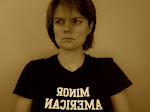Anyone who was mildly rankled by Vendler saying there is no “major” thirty-something poet should take a look at Ashes for Breakfast, Durs Grünbein’s selected poems. I’ve been waiting five years or so to see a Grünbein volume in translation. He is Germany’s major younger poet and won its major literary prize at the age of 33. Born in 1962, he is roughly of my generation. Call him, then, Vendler’s exemplar.
I like Grünbein—I especially liked Rosmarie Waldrop’s translations of his early poems for The Exact Change Yearbook. But the very title Ashes for Breakfast telegraphs the nature of the cross an “important poet” must bear, and the translator’s comparisons to Joseph Brodsky don’t further endear me to the project. If the price of being an internationally recognized poet—perhaps one even in the running for a Nobel—is that I must forego the autonomy of the imagination to be the “conscience” of the race, or the voice of the zeitgeist, then no thank you and no thank you. And I feel privileged, for once, to be an American if our most marvelous poets like Connie Deanovich or Christopher Edgar don’t feel obliged to suborn their gifts to a “moral” vision.
Sure, Grünbein is East German—history weighs on those people, etc.; we have no history so we must borrow others’, cf. Godard. But if Godard’s right then aren’t I right?—forget Europe’s history; make your own damn poetry. The freedom (degraded word, but vis-a-vis art still relevant) is yours.
And I feel extra exuberant about this after seeing In the Realms of the Unreal at The Film Forum this weekend. Of course it is meaningless to say one would choose to be Henry Darger, but instead, one can use his example to throw the worldly efforts of the Vendlers and Grünbeins into perspective. And we can see that as extraordinary, as heartbreaking, as Darger’s circumstances were, it is possible to emulate him in spirit, placing the imagination at the center of our investigations — better that than be overly concerned with the brittle criteria of the “major” or “important.”
Monday, January 31, 2005
Subscribe to:
Post Comments (Atom)


No comments:
Post a Comment